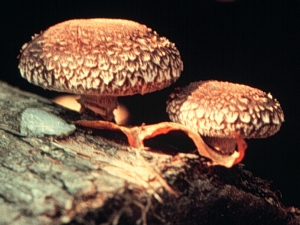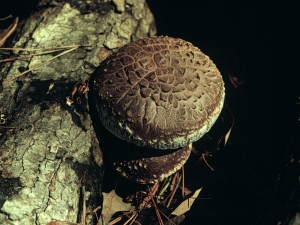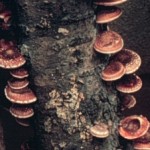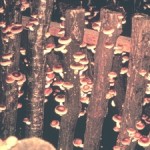Mushrooms
go.ncsu.edu/readext?435663
en Español / em Português
El inglés es el idioma de control de esta página. En la medida en que haya algún conflicto entre la traducción al inglés y la traducción, el inglés prevalece.
Al hacer clic en el enlace de traducción se activa un servicio de traducción gratuito para convertir la página al español. Al igual que con cualquier traducción por Internet, la conversión no es sensible al contexto y puede que no traduzca el texto en su significado original. NC State Extension no garantiza la exactitud del texto traducido. Por favor, tenga en cuenta que algunas aplicaciones y/o servicios pueden no funcionar como se espera cuando se traducen.
Português
Inglês é o idioma de controle desta página. Na medida que haja algum conflito entre o texto original em Inglês e a tradução, o Inglês prevalece.
Ao clicar no link de tradução, um serviço gratuito de tradução será ativado para converter a página para o Português. Como em qualquer tradução pela internet, a conversão não é sensivel ao contexto e pode não ocorrer a tradução para o significado orginal. O serviço de Extensão da Carolina do Norte (NC State Extension) não garante a exatidão do texto traduzido. Por favor, observe que algumas funções ou serviços podem não funcionar como esperado após a tradução.
English
English is the controlling language of this page. To the extent there is any conflict between the English text and the translation, English controls.
Clicking on the translation link activates a free translation service to convert the page to Spanish. As with any Internet translation, the conversion is not context-sensitive and may not translate the text to its original meaning. NC State Extension does not guarantee the accuracy of the translated text. Please note that some applications and/or services may not function as expected when translated.
Collapse ▲

There is a resurgence of interest in mushroom production and consumption across the state of North Carolina. For the past 30-plus years, when farmers asked about growing mushrooms, they were usually referring to shiitake mushrooms grown on oak logs. But recently, inquiries are coming in on a wider variety of mushrooms including oyster, enoki, chaga, reishi, and truffles.
To see what some of the North Carolina mushroom growers are doing, visit these pages:
- Black Trumpet Farm
- Garland Truffles
- Deep Woods Mushrooms
- Carolina Mushroom Farm
- Haw River Mushrooms
- Fox, Farm and Forage
- Sharonview Farm
- Urban Gourmet Farms
- Resting Point Farms
- The Forest Farmacy
- Sprinkles Gourmet Mushrooms
Mushroom Spawn Suppliers in North Carolina
- Deep Woods Mushrooms is a local distributor for Field and Forest Products mushrooms spawn
- The Forest Farmacy sells plug spawn for a variety of mushrooms
- Sharonview Farm sells inoculated logs for home growers
- Black Trumpet Farm sells home grow kits for a wide variety of mushrooms
- Carolina Mushroom Farm sells home grow kits and focus on oyster mushrooms
- Garland Truffles sells young trees inoculated with truffles
Shiitake Mushroom Growing Information

Shiitake shelf
- Best Management Practices for Log-Based Shiitake Cultivation – Cornell University
- Cultivation of Shiitake on Natural and Synthetic Logs – Pennsylvania State University
- Kentucky Shiitake Production Workbook – University of Kentucky
Other Mushrooms
- Truffle Project
- Source for Perigord truffle inoculated tree seedlings
- Perigord Truffles of Tasmania
- Mushroom production and marketing guide by ATTRA
- Penn State Extension Mushroom Growing Info
- Cultivation of Oyster Mushrooms PDF – Penn State
Associations for Fungi Producers
Reviewed and updated 6/14/2023. Jeanine Davis, NC Alternative Crops & Organics Program, Department of Horticultural Science, NC State University



